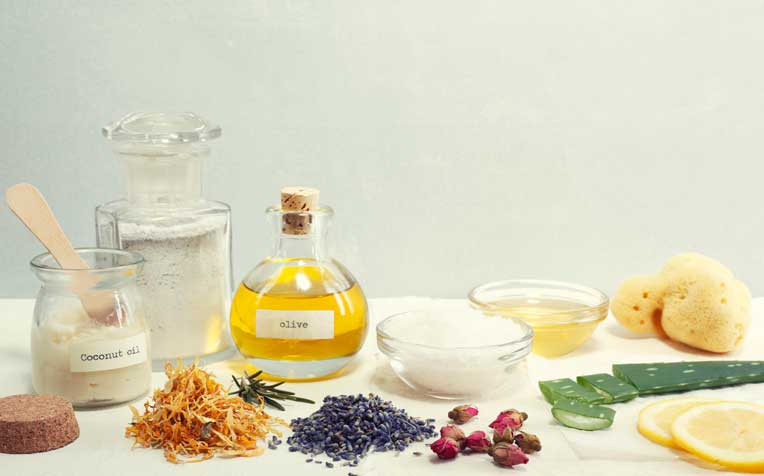1. "Natural" beauty products aren't regulated, but certified organic products meet specific standards for ingredient purity.
2. Organic skincare typically excludes parabens, synthetic chemicals, artificial colors, and other potentially irritating ingredients.
3. No scientific evidence proves organic products are less allergenic, but they may suit those avoiding specific ingredients.

Organic skincare products are made with organic ingredients, grown or processed without the use of pesticides, synthetic fertilisers or chemicals.
Organic skincare products may appeal to those seeking more natural forms of beauty
If you’ve been to the beauty aisle in your local supermarket or shopping mall, you’re sure to have seen many products proclaiming to be “natural”. But what does this word really mean?
“Natural” is a word that has been bandied about rather freely by beauty brands seeking entry into a market where the notions of “green”, “pure”, “botanical” and “natural” can justify a premium price.
But like food and other product categories, “natural” does not mean much else, apart from the green shades that adorn a product’s packaging.
One option for consumers seeking natural alternatives is organic skincare products that have been made with organic ingredients, grown and processed without the use of pesticides, synthetic fertilisers or chemicals.
However, not all organic products are created equal. The term “certified organic” is where minimum standards come in. The United States Department of Agriculture, or USDA, is an established certification body which dictates the specific standards that products must meet in order to display the “USDA Organic” seal. Other similar organisations can be found in Japan and some European countries.
While each organisation has different standards, “certified organic” products may be the closest consumers can come to buying products that have been subject to some form of regulation.
Skin sensitivities
What matters most are not the ingredients present in skincare products but rather the ones that are absent. Organic skincare products typically don’t contain parabens, sodium laureth sulphates, synthetic chemicals, dyes, preservatives, fillers, petroleum-derived ingredients or artificial colours and fragrances.
Skin sensitivities are usually the main reason why sufferers turn to organic skincare, says Dr Pang Shiu Ming, Senior Consultant at the Department of Dermatology at Singapore General Hospital (SGH), a member of the SingHealth group.
Having doubts about the benefits of organic skincare and cosmetics, he says there is no scientific data to support the claim that they are less allergenic or less irritating to the skin. Those with known allergies to preservatives and fragrances should avoid using products with these ingredients, and you should stop using a product if an itch or rash appears.
If you're looking for a more natural solution to your skincare needs, clearly labelled, certified organic products may be a good place to start.
The hit list
These ingredients have been known to cause allergic reactions:
- Parabens (methyl, propyl, butyl and ethyl): Used as preservatives in many toiletries and cosmetics, these can cause allergic reactions in those with sensitive skin.
- Artificial fragrances: Can cause skin discolouration.
- Synthetic colourings: Commonly used to make cosmetics visually attractive, these are labelled as FD&C or D&C, followed by a colour and a number (e.g. FD&C Green No. 6 and D&C Red No. 6).
- Sodium lauryl sulphate (SLS): SLS and its chemical cousin sodium laureth sulphate (SLES) are known irritants, but not known carcinogens (i.e. cancer causing).
- Formaldehyde, Diethanolamine/Triethanolamine (DEA/TEA): Can irritate sensitive skin.
Ref: W09
Contributed by


















 Get it on Google Play
Get it on Google Play